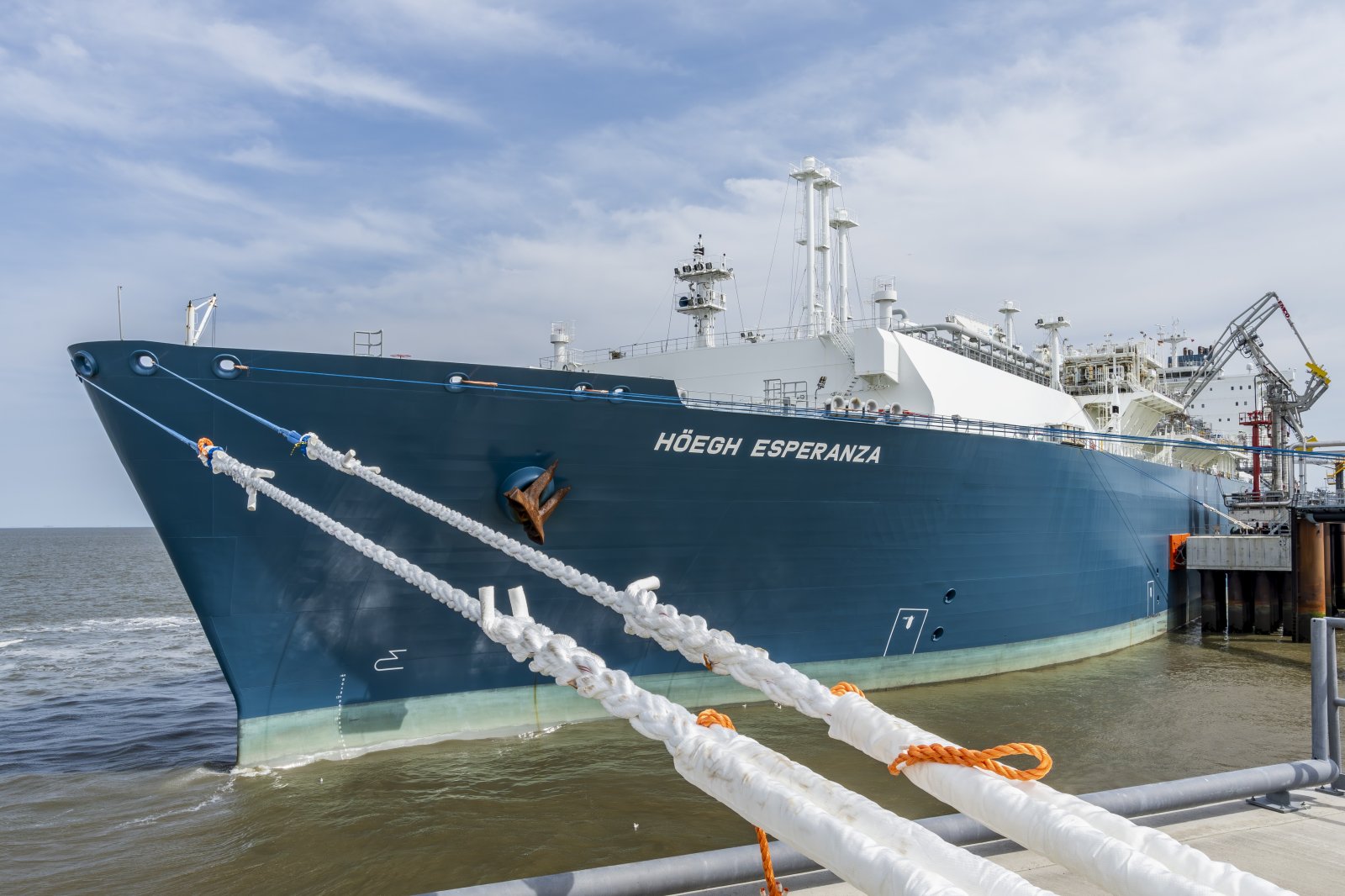According to a statement by the Commission, the measure contributes to the achievement of the objectives of the REPowerEU Plan by enabling the diversification of energy supplies and ensuring security ...
According to the Commission, the total net contribution between 2023 and 2033 is expected to amount to 4.06 billion euros ($4.23 billion).
In case of higher losses than expected, the total net contribution could amount to 4.96 billion euros ($5.17 billion), the Commission said.
Germany has committed to stop operating the Brunsbüttel and Stade terminals once the planned onshore LNG terminals at those locations become operational, preventing market overlap.
“Once the onshore LNG terminals are active, the FSRUs will be sub-let at market rates, following worldwide calls for interest open to all bidders and locations, until the lease contracts expire,” the Commission said.
Going forward, the capacity of the terminals will be auctioned in three different products: (i) a minimum technical capacity, subject to a delivery obligation, needed to ensure that the terminals remain operational in steady regime, therefore available at all times to ensure gas security of supply; (ii) medium term (3-4 years); and (iii) short term (1 year).
Germany has also introduced safeguards to address possible undue distortions to competition, the Commission said.
Capacity auctions
Last week, DET announced the marketing of short-term regasification capacities at its FSRU-based LNG terminals in Brunsbüttel and Wilhelmshaven for 2025.
DET said that this is the first of two steps in the current marketing process.
The company will also offer further capacity for 2025 and beyond to the international market via PRISMA in late January/early February 2025.
DET said in July this year it will launch new capacity auctions for its FSRU-based facilities in Brunsbüttel and Wilhelmshaven after it did not receive any bids in the prior marketing round.
The 170,000-cbm FSRU Hoegh Gannet, which serves the Elbehafen LNG import terminal in Brunsbüttel, started supplying regasified LNG to the German grid on March 22, 2023, as part of the commissioning phase.
Hoegh Gannet can regasify up to 750 mmscfd.
In addition, the Wilhelmshaven 1 terminal also features a Hoegh Evi FSRU. The unit in question is the 170,000-cbm FSRU Hoegh Esperanza.
Two LNG terminals delayed
Besides these terminals, DET is working to launch its next two FSRU-based LNG import terminals in Stade and Wilhelmshaven.
The launch of the two terminals will be further postponed as DET previously expected to launch the terminals in January next year.
“We anticipate commencing operations at the earliest possible opportunity within the first quarter,” a spokesperson for DET told LNG Prime last week.
DET’s third LNG import facility in Stade features the 174,000-cbm FSRU Energos Force.
In March this year, the 2021-built FSRU, owned by Apollo’s Energos Infrastructure, arrived at the AVG jetty in Stade.
Once operational, the almost 300-meter-long ship will feed up to 5 bcm of gas per year into the German gas network.
DET’s second terminal in Wilhelmshaven will have a capacity of about 4 bcm per year.
Excelerate’s 138,000-cbm FSRU Excelsior arrived at the Navantia yard in El Ferrol, Spain last year for a planned stopover before its job in Wilhelmshaven. According to its AIS data, the FSRU is still located there.
Content Original Link:
" target="_blank">









































